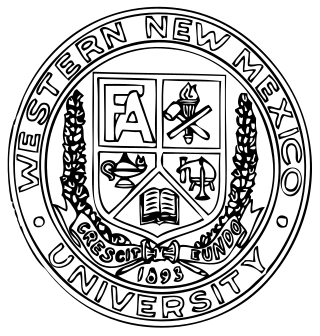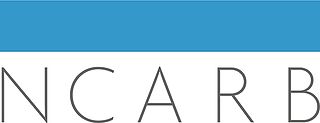Related Research Articles
A Bachelor of Education is an undergraduate professional degree which prepares students for work as a teacher in schools. In some countries such as Tanzania and Kenya, additional tasks like field work and research are required in order for the student to be fully qualified to teach. It may also be accompanied with or followed by tests for licenses or certifications required for teachers in some areas.

English as a second or foreign language is the use of English by speakers with different native languages, often with students whose native language is not English and are learning to speak and write English, commonly among students Language education for people learning English may be known as English as a foreign language (EFL), English as a second language (ESL), English for speakers of other languages (ESOL), English as an additional language (EAL), or English as a New Language (ENL), which refers to the practice of studying English in a country where it is not the dominant language. These programs, especially ESL, are usually an academic subject, course, or program designed to teach English to students who are not yet proficient in the language. While some people only refer to learning in an English-speaking country, learning this language can also entail learning in a non-English speaking or non-native nation.
A Praxis test is one of a series of American teacher certification exams written and administered by the Educational Testing Service. Various Praxis tests are usually required before, during, and after teacher training courses in the U.S.

The NYC Teaching Fellows is an alternative certification program that focuses on education quality in New York City public schools by attracting mid-career professionals, recent graduates, and retirees from all over the country. The program provides teacher training, coursework, and resources. Fellows are eligible for a fast track into full-time teaching positions in New York City public schools following pre-service training.

West Visayas State University is a public normal research university located in La Paz, Iloilo City, Western Visayas region of the Philippines. It was established in 1924 as Iloilo Normal School under the tutelage of the Thomasites, but dates back its founding in 1902 as a part of Philippine normal school system with Iloilo National High School established by the American colonial government. It later became West Visayas State College in 1965 and acquired its university status becoming West Visayas State University in 1986.
The Master of Education is a master's degree awarded by universities in many countries. This degree in education often includes the following majors: curriculum and instruction, counseling, school psychology, and administration. It is often conferred for educators advancing in their field. Similar degrees include the Master of Arts in Education and the Master of Science in Education.

Western New Mexico University is a public university in Silver City, New Mexico. It was founded in 1893.

The National Council of Architectural Registration Boards (NCARB) is a nonprofit corporation comprising the legally constituted architectural registration boards of the 50 states, the District of Columbia, Guam, the Northern Mariana Islands, Puerto Rico, and the U.S. Virgin Islands as its members. Its mission is to collaborate with licensing boards to facilitate the licensure and credentialing of architects to protect the health, safety, and welfare of the public.

The School of Information Sciences, also The iSchool at Illinois, is an undergraduate and graduate school at the University of Illinois Urbana–Champaign. Its Master of Science in Library and Information Science is currently accredited in full good standing by the American Library Association. The school is a charter member of the iSchool initiative.
English-Language Learner is a term used in some English-speaking countries such as the United States and Canada to describe a person who is learning the English language and has a native language that is not English. Some educational advocates, especially in the United States, classify these students as non-native English speakers or emergent bilinguals. Various other terms are also used to refer to students who are not proficient in English, such as English as a Second Language (ESL), English as an Additional Language (EAL), limited English proficient (LEP), Culturally and Linguistically Diverse (CLD), non-native English speaker, bilingual students, heritage language, emergent bilingual, and language-minority students. The legal term that is used in federal legislation is 'limited English proficient'. The instruction and assessment of students, their cultural background, and the attitudes of classroom teachers towards ELLs have all been found to be factors in the achievement of these students. Several methods have been suggested to effectively teach ELLs, including integrating their home cultures into the classroom, involving them in language-appropriate content-area instruction early on, and integrating literature into their learning programs.
The American Board for Certification of Teacher Excellence, often referred to as the American Board, was launched with a $5 million federal grant from the U.S. Department of Education in 2001. The non-partisan, non-profit organization's mission is to certify subject experts, experienced professionals, career changers, and military veterans as teachers and was endorsed by U.S. Education Secretary Rod Paige. Shawn Arévalo McCollough serves as the President and Chief Executive Officer.
The Passport to Teaching is an alternative teacher certification offered by the American Board for Certification of Teacher Excellence.

Bulacan State University is a public university in Bulacan province, Philippines. Its main campus is in Malolos.
Erikson Institute is a graduate school in child development in downtown Chicago, Illinois. It is named for the noted psychoanalyst and developmental psychologist, Erik Erikson.
A paraprofessional educator, alternatively known as a paraeducator, para, instructional assistant, educational assistant, teacher's aide or classroom assistant, is a teaching-related position within a school generally responsible for specialized or concentrated assistance for students in elementary and secondary schools.
The University of Santo Tomas College of Education, popularly known as "UST-Educ", is the teacher education, nutrition and dietetics, food technology, and library and information science school of the University of Santo Tomas, the oldest and the largest Catholic university in Manila, Philippines. It was established in 1926 at Intramuros, Manila.

The University of Florida College of Education is the teacher's college, or normal school, of the University of Florida. The College of Education is located on the eastern portion of the university's Gainesville, Florida, campus in Norman Hall, and offers specializations in special education, higher education, educational policy, elementary education, counseling, teaching, and other educational programs. It is consistently ranked one of the top schools of education in the nation. The college was officially founded in 1906. In fiscal year 2020, the College of Education generated $102.8 million in research funding.
With 41 accredited teacher education programs, Illinois State University is one of the premier teaching preparation institutions in the nation. The College of Education offers a range of undergraduate and graduate teacher education and administrator preparation programs and certificates.
Pop Culture Classroom, is a nonprofit organization based in Denver, Colorado, that teaches literacy and the arts through alternative approaches to learning and character development. The organization creates educational programs for underserved youth, schools. and communities using comic books, graphic novels and related media to inspire passion for reading, art, and learning.

In the United States, elementary schools are the main point of delivery of primary education, for children between the ages of 4–11 and coming between pre-kindergarten and secondary education.
References
- ↑ "Teachers Institute at la Academia - Colorado Education for Alternative Licensure". Archived from the original on 2012-03-11. Retrieved 2011-08-08.
- ↑ "Teachers Institute at la Academia - Colorado Education for Alternative Licensure". Archived from the original on 2015-01-19. Retrieved 2011-08-10.
- ↑ "Teachers Institute at la Academia - Colorado Education for Alternative Licensure". Archived from the original on 2015-01-19. Retrieved 2011-08-10.
- ↑ "Teachers Institute at la Academia - Colorado Education for Alternative Licensure". Archived from the original on 2010-10-27. Retrieved 2011-08-10.